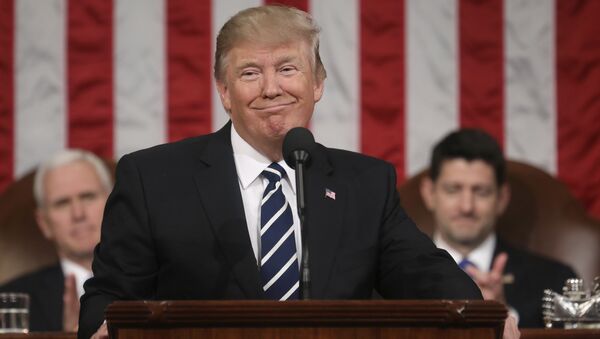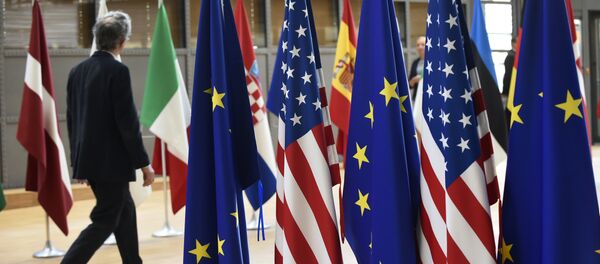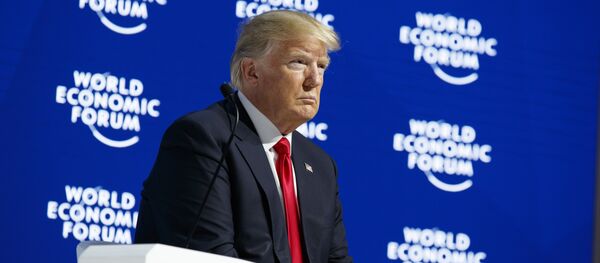Speaking in an interview on Sunday, Trump said that he will pursue full enforcement of international trade rules and did not rule out the further use of custom tariffs and regulatory action against dumping practices.
Radio Sputnik discussed this issue with David Collins, professor of International Economic Law at The City Law School of City, University of London.
Sputnik: Trump slammed the EU for its alleged unfair trade practices in relation to the US. What do you think he was referring to and do you think it's a fair accusation or assessment of situation?
Professor David Collins: That's a very good question, [Trump] wasn't very clear, was he? And this seems to be President Trump's style: he makes statements and we are never quite sure exactly what he means. What he could mean is, with respect to potential subsidization of various industries — and I think he might be alluding to something like Airbus — we know that there is a long-standing trade conflict regarding Boeing and Airbus. He could be talking about subsidization of various industries; he could be talking about dumping of various products — manufactured goods. He could just be talking about a simple fact — and it is a reality — that the Customs Union of Europe does impose tariffs that affect members outside of the EU, so, obviously, trade within Europe is subject to no tariffs, unlike trade from the US. So he might be saying something along the lines of "why does France allow Italy, for example, to trade with it at zero tariffs and it does not allow us to trade with it at zero tariffs." It could be that kind of thing.
That could more that he is referring to. So it could be any range of issues. I can't think of a particular industry, to be perfectly honest.
Sputnik: What is the reality of trade balance and imbalance between the EU and the US?
I think that is a bit misleading, I would say that there isn't really a problem. But he's absolutely right, if the European Union is engaging in unfair trade practices, they need to be called out on it, so he's right to say that.
Sputnik: Recently, we've heard about huge US corporations like Google and Starbucks not paying their fair share of European taxes. Does that have anything to do with this?
So I don't think it's so much of a tax issue. However, you're right because he did allude to tax. I think he said just something like: "they enter our country with no tax or very little tax," and I suspect — I don't want to put words into the president's mouth — but I suspect what he probably meant there was tariffs, or excise taxes. I don't think he meant income taxes, but I could be wrong.
Sputnik: Trump also did not rule out the further use of customs tariffs and regulatory actions. What is that going to do to affect trade with EU?
Sputnik: How much competition is there when it comes to free trade deals between the US and the EU or different countries?
Professor David Collins: Now that's an interesting phrase: "competition between free trade deals." It almost sounds a bit paradoxical, but I see what you mean: the reality is, of course, that negotiating free trade agreements takes a lot of energy, takes a lot of human resources and time; it's very difficult to negotiate trade agreements on multiple fronts so you do have to prioritize. And I would suggest — most negotiators and policy analysts would agree with this — you have to focus on the achievable gains and the big ones. So, for the UK, for example, when entering its Brexit stage, would probably want to look at larger regional agreements if it could get in on one. Or, something like a free trade agreement with the US would be an immediate gain because of the size of the US economy. We know that the Trans-Pacific Partnership is going to have 11 countries — the UK suggested possibly joining that. NAFTA is being re-negotiated in North America — there were some hints that the UK might try to get into on that. But it is going to take massive resources and I can tell you in this country, the UK, the government has hired a lot of negotiators. The Department of International Trade is massive now, compared to where it was a few years ago. So it might work.
The opinions expressed are those of speaker alone and do not necessarily reflect the position of Sputnik News.




